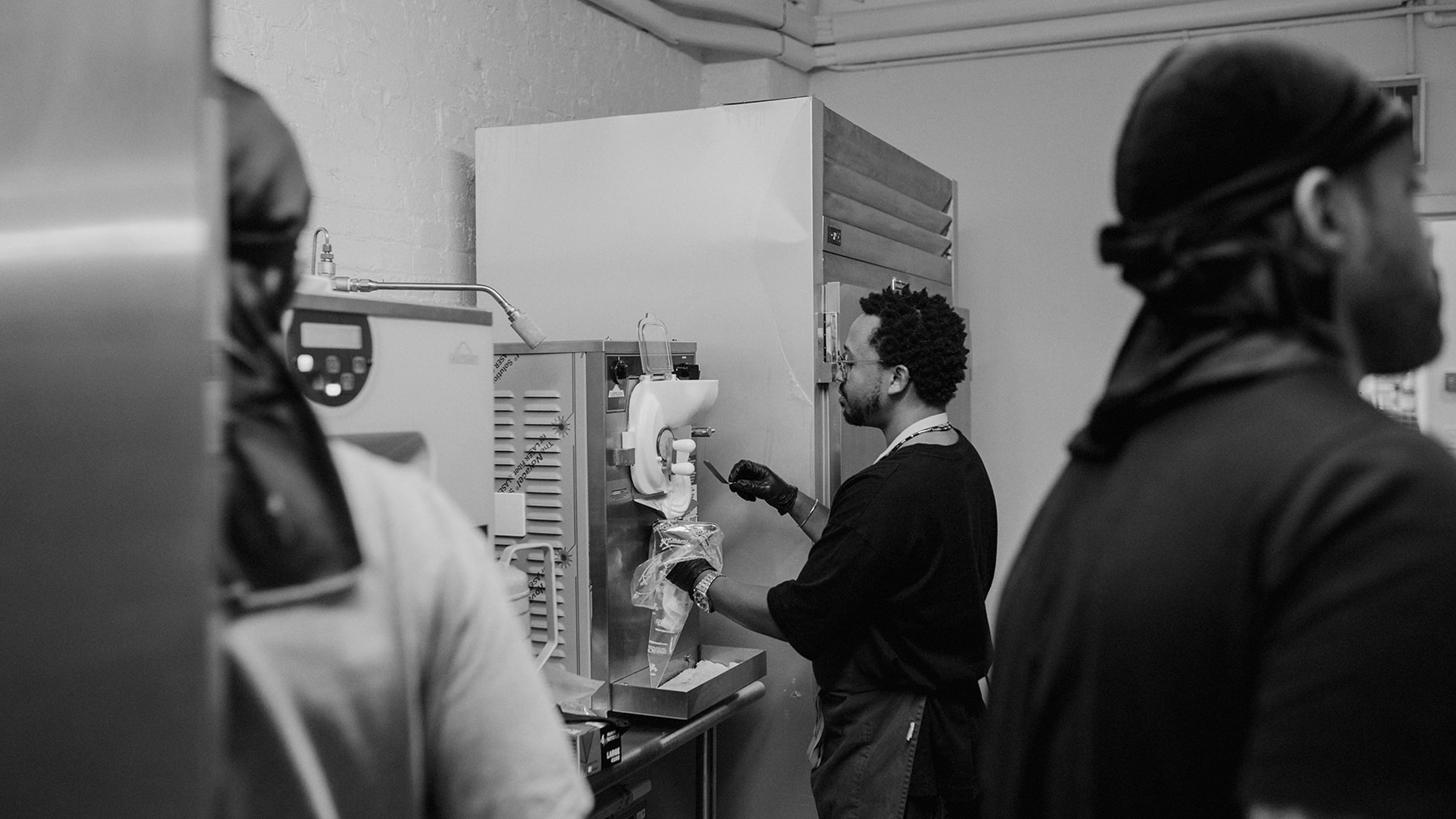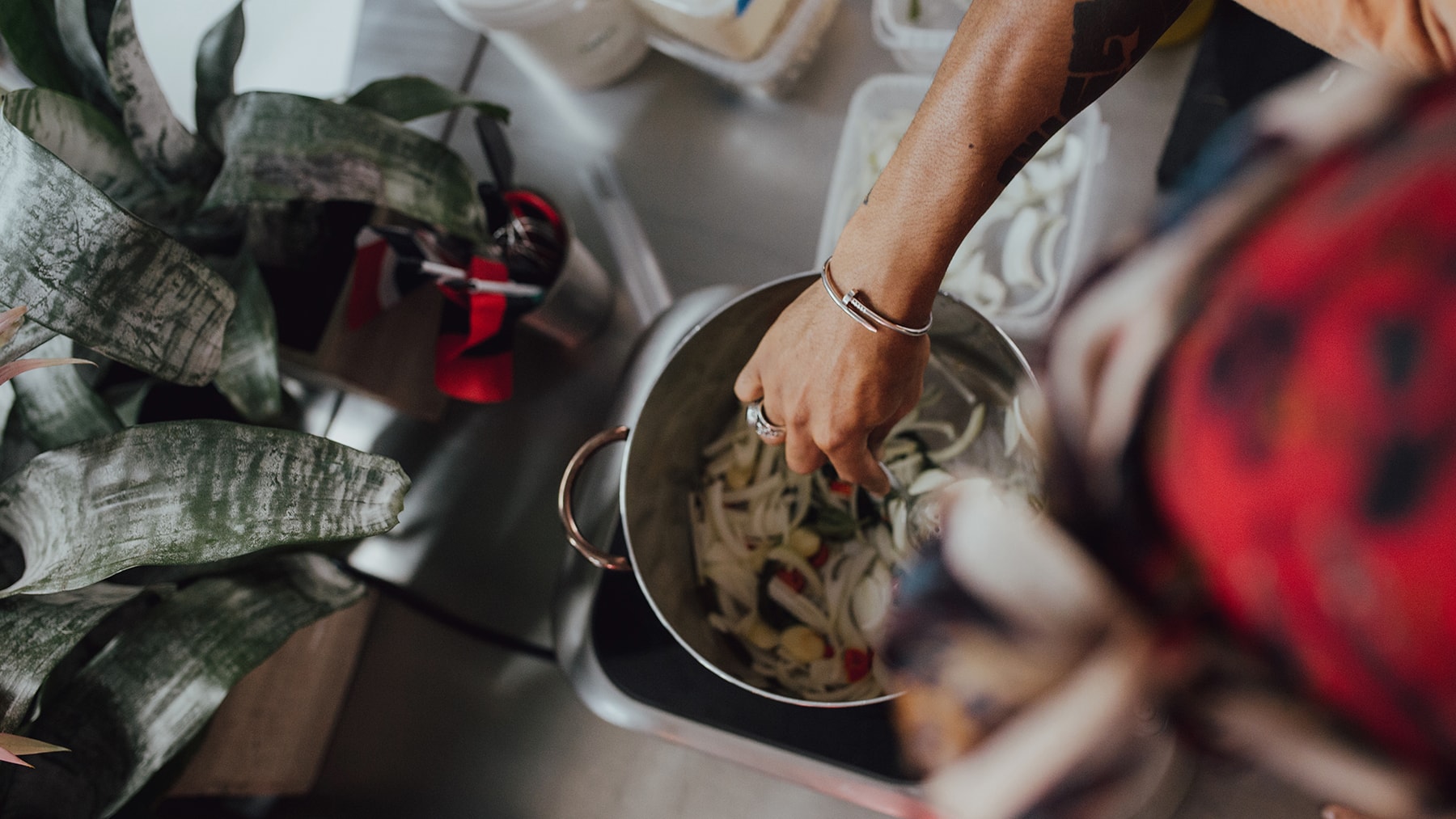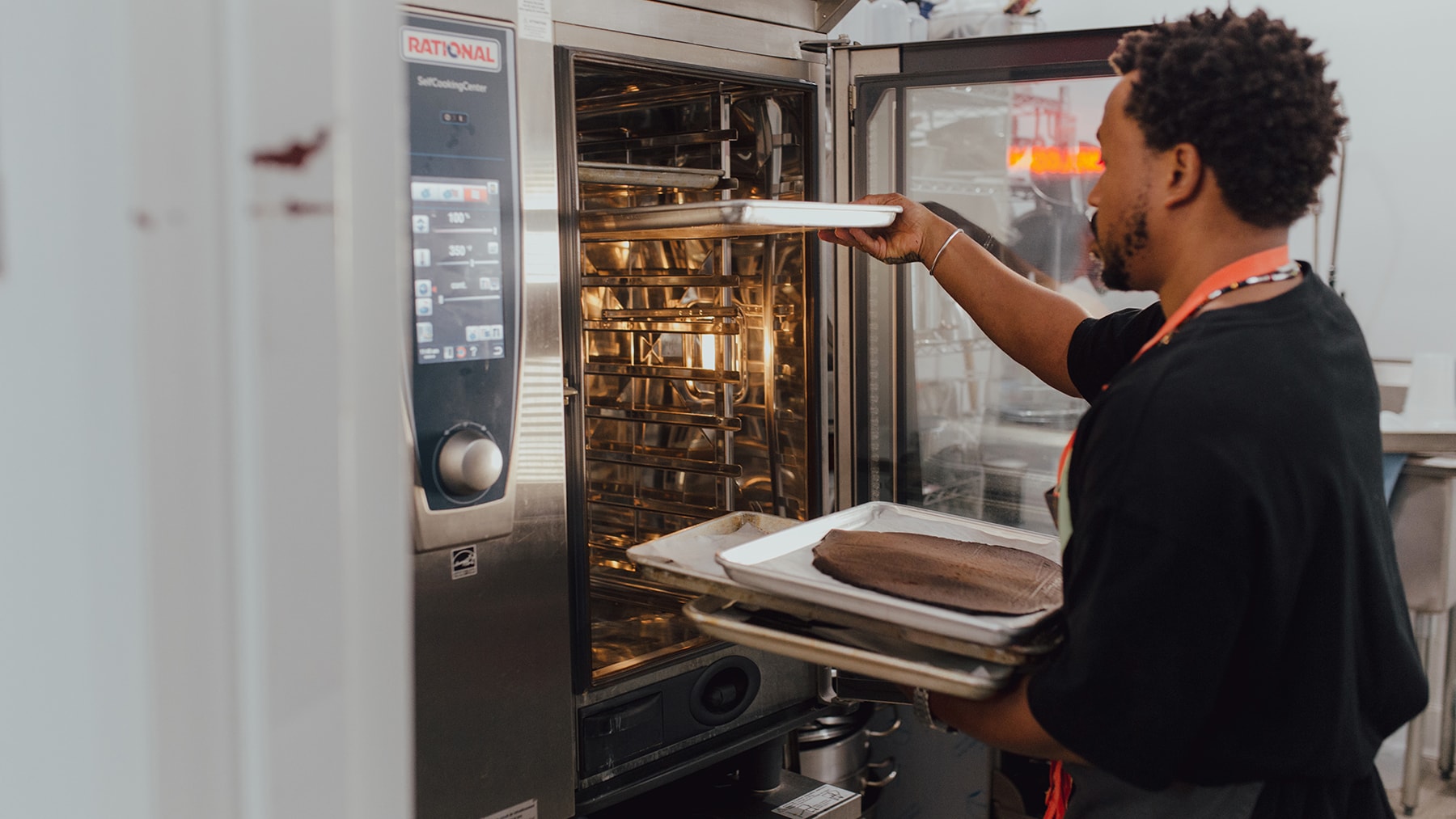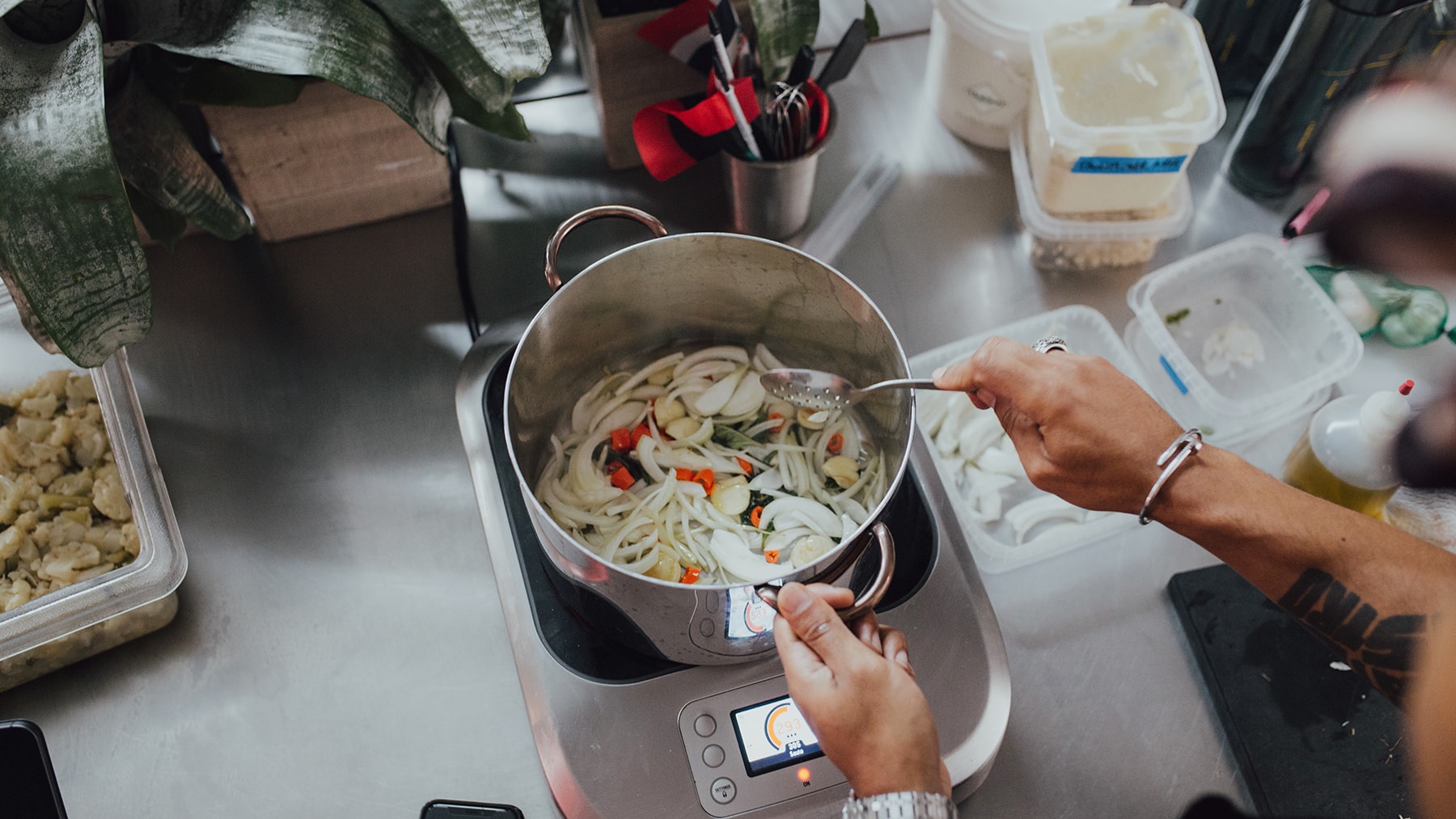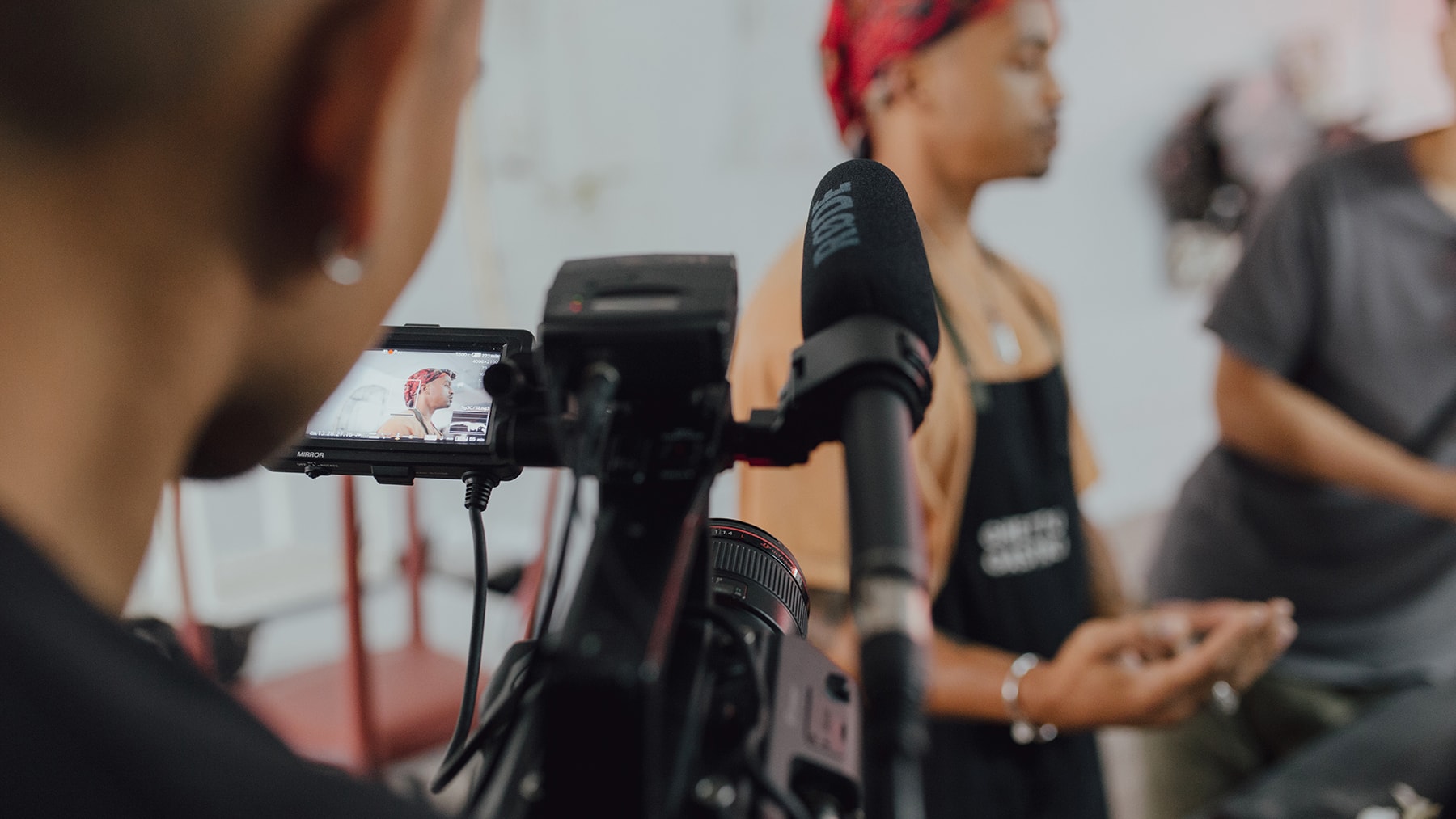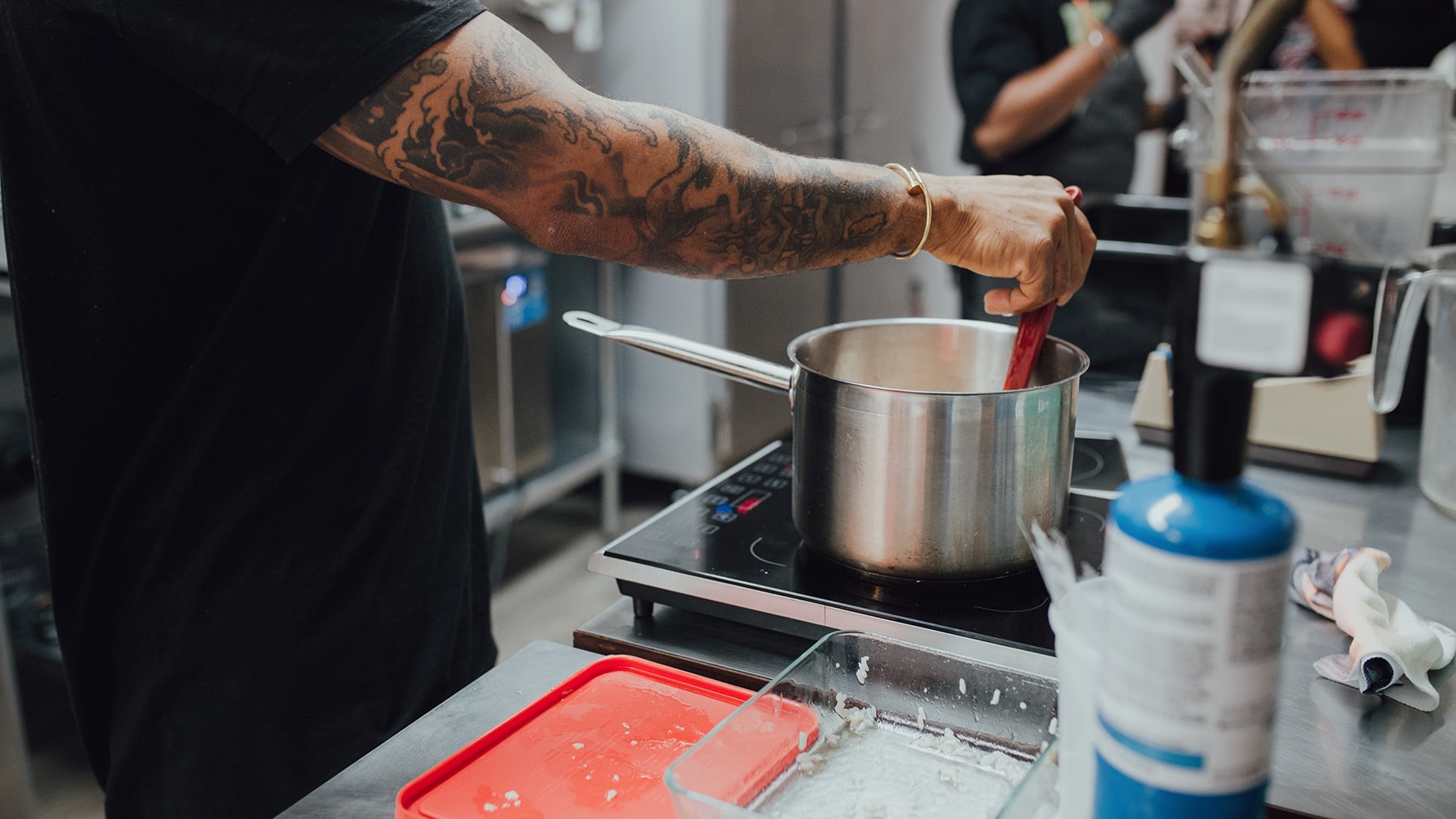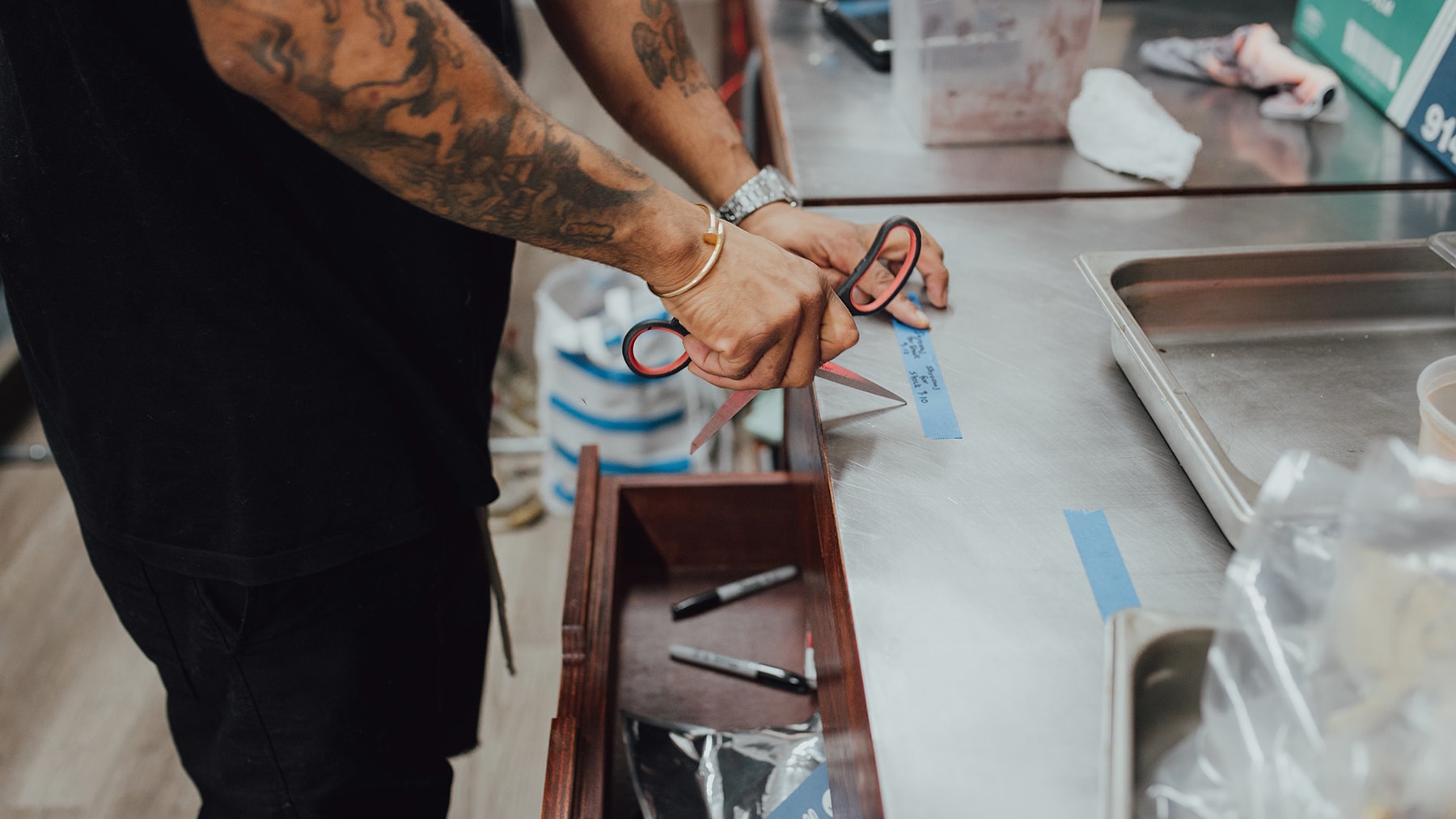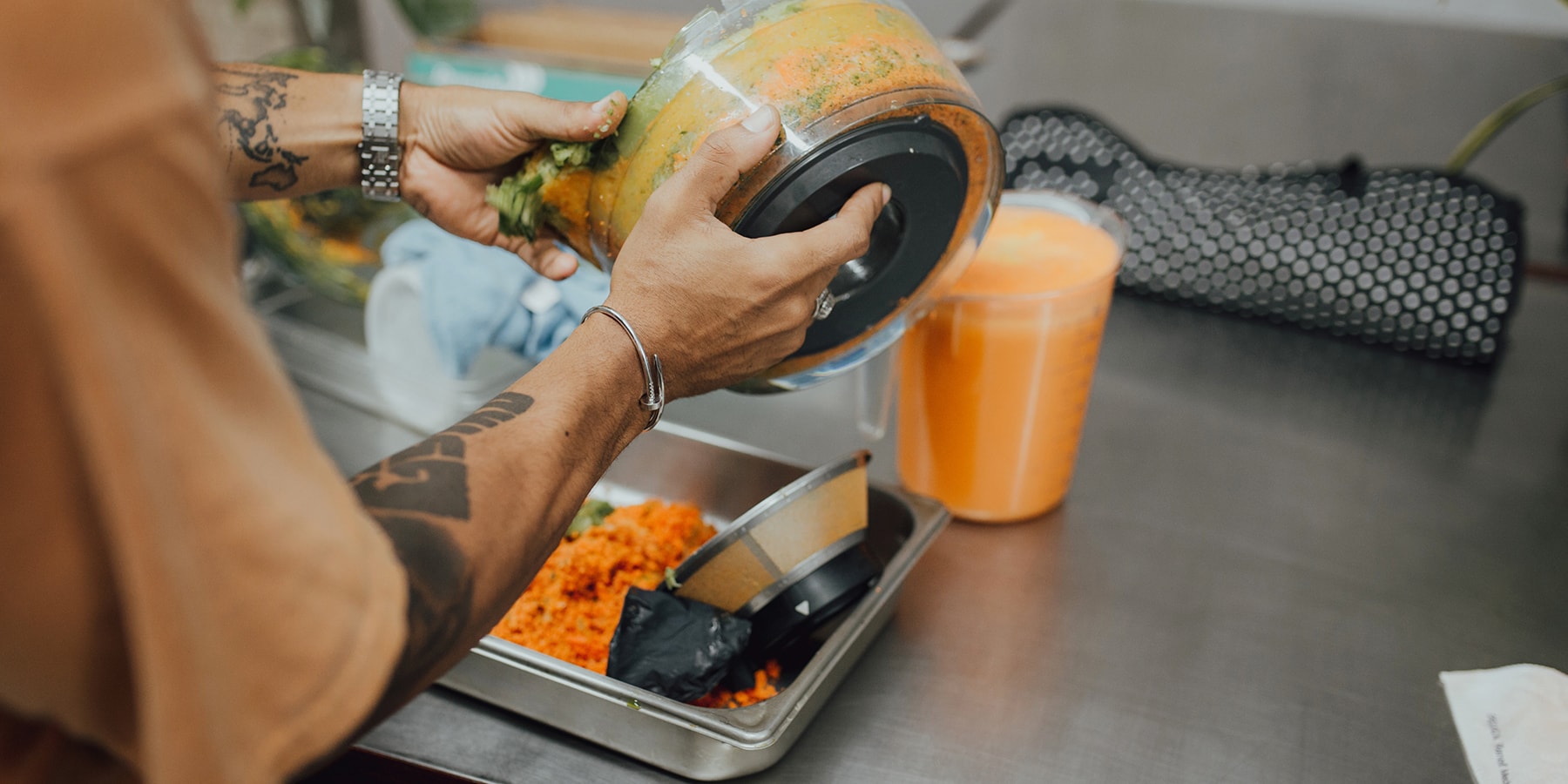
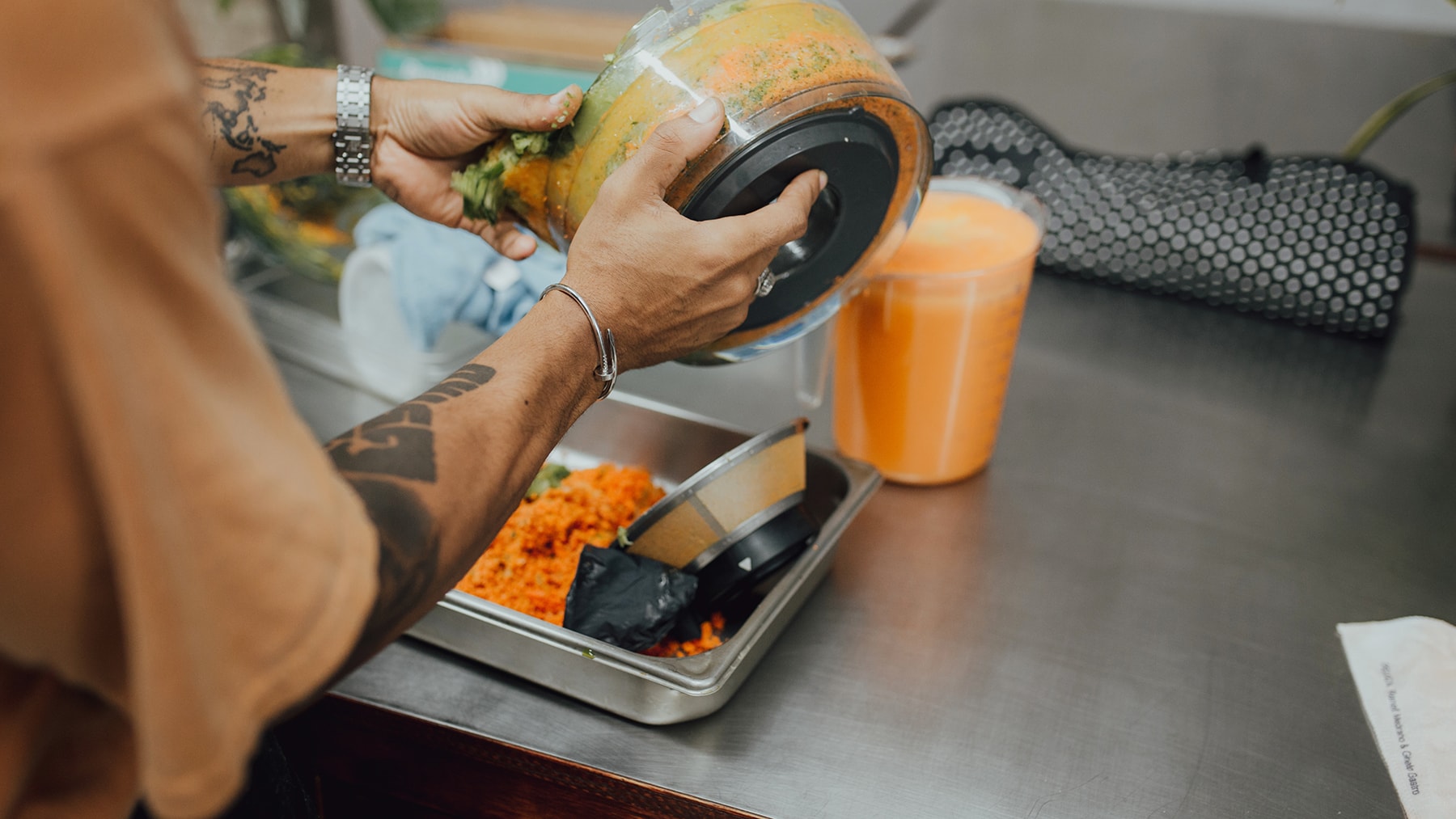
Growing up, the only thing you want to do is spend time with your friends. Of course, as life goes on, you grow out of having time to just “hang out” or sit around and play video games as the pressures of adult life propel you to reach for things that don’t allow you to bring your friends along: job interviews, first dates. But regardless of where you are in life, the idea of being able to not only coexist but to collaborate alongside your closest mates is nothing short of aspirational.
For Jon Gray and his friends, however, this idea is more than just a shiny object in the distance. Jon, along with his childhood friend Lester Walker and fellow Bronx natives Pierre Serrao and Malcolm Livingston II, make up a new age culinary collective that has carved out a unique spot within the food space: progressively reimagining the F&B world while also redefining what it means to be a modern chef. Ghetto Gastro came from humble beginnings, getting its start catering house parties in and around New York City. With their unique take on traditional cuisines and similarly polarizing personalities, the band quickly found themselves hosting and cooking for people like Rick Owens and Michele Lamy, as well as working alongside brands like Cartier and Off-White.
Spending just one afternoon with the crew, I could already feel how their collective energy can be contagious, which translates to what I can only imagine as a charming dining experience when all four of them are present. Inside their new atelier—smack-dab in the heart of uptown New York—the chefs were hard at work, toiling over ingredients of all shapes and sizes. While it was just the four of them surrounding the gleaming industrial kitchen counter, the space was clamoring with laughter, the whirling of various culinary equipment and of course, bickering. The disputes weren’t like ones you’d typically hear: one debate broke out between Pierre and Lester about how the fridge should be organized; another with Malcolm (whose past life marked him as the head pastry chef of NoMa) on whose baking skills reigned supreme.
“For me, Ghetto Gastro is like a new letter of the alphabet, or a new term in gastronomy. When you think of other cuisines—Japanese, Thai, French—think of Ghetto Gastro as almost like a culture. I feel it has its own language.”
While Ghetto Gastro is all about food―from their conversations to their creative efforts―the four chefs agree that in reality, their focus is less on food and more on people. Their appetite for connecting, getting together with peers and like-minded individuals, is what ultimately drives Ghetto Gastro. “It’s amazing to see what you can accomplish when you apply yourself with people who are like-minded, with the same sort of work ethic,” Jon enthused. While together, the guys are four connected minds: GG prides itself on being “polarizing” or, in other words, on fusing together seemingly disparate elements.
“Bringing Bronx to the World & Bronx to the World,” declares the pink neon sign. Opened this past September and ripe with full-size industrial fridges, stainless steel tabletops and an ice cream machine, the Ghetto Gastro space has already brought together a tableful of guests from all over the world for an ALYX Studio event during New York Fashion Week.
“The stories have always been about freedom. Food, the art that we make, our practice, it’s an exercise in not letting other people set the tone or value. Being able to establish your own value.”
Another recent milestone for GG was forging the Bronx Brasserie, a pop-up food space during Paris Fashion Week. For the chefs, the pop-up marks a journey that has taken Ghetto Gastro around the world and finally brought it full-circle in Paris with the Bronx Brasserie at the Place Vendôme. To them, this is not only the dissemination of culture but also the
disruption—something they remain eternally focused on. Whether it’s in the act of propelling cultural connections or simply in successfully melding business and pleasure, Ghetto Gastro is breaking the mold, upending traditional modes of thought in any and every way they can think of.
The term “ghetto” gets used in a lot of different contexts. The definition changes with use, but for Ghetto Gastro, what is that term in relation to what you do?
Malcolm: For me, Ghetto Gastro is like a new letter of the alphabet, or a new term in gastronomy. When you think of other cuisines—Japanese, Thai, French—think of Ghetto Gastro as almost like a culture. I feel it has its own language.
How do you see it growing?
Malcolm: Well, I think what’s really important for us is it not just being the four of us. We want, to take one of Jon’s terms, to kind of make clones of ourselves. We don’t want to see just the four of us. We want anybody who comes to our space, or who comes to work with us, to take knowledge, to take the information and be able to apply that to their day-to-day. We did it with food, but there’s so many different ways and different mediums that you can approach and disrupt.
Jon: For me, this project, and I think all projects, that’s part of my life journey, I always knew it was about freedom and revolution, I just didn’t know how to get to it. That’s why I was so torn when I was in the streets hustling, because I’m a part of the problem. And I know better. That’s like, the worst type of villain. I have homies that grew up in situations and came from families that have more hardships and didn’t have the opportunity that I had. And I still made the decision I made. So that kind of always was the underlying theme. The stories have always been about freedom. Food, the art that we make, our practice, it’s an exercise in not letting other people set the tone or value. Being able to establish your own value.
You started describing it a bit already, but how do you guys describe the Ghetto Gastro experience?
Jon: I think one of the major takeaways about how we put the room together is really like, the food is a part of it, but it’s really the connections that are forged. It’s people that have had babies, gotten married, built businesses together and built long friendships, just coming to a Ghetto Gastro function because it’s intimate and it’s like, when you’re breaking bread, it’s like, really breaking boundaries, you know what I’m saying?
Pierre: And they’re all different too; it’s like any Ghetto Gastro experience is not going to be duplicated. You’re not going to do the same thing twice. So if you’ve been to one, you might have come to a seated dinner, but then you might have caught us in Paris doing a party where we’ve got everybody from No Vacancy to Siobhan Bell and Anderson Paak in the building. We might have some exotic dancers upstairs, ladies getting it on and popping, chicken and waffles slinging. Or catch us in Venice doing something with Michele Lamy at the Biennale. Any Ghetto Gastro experience is going to be different. One of the things that I think is a constant with us is that nothing’s guaranteed. Other than a good time.“Any Ghetto Gastro experience is going to be different. One of the things that I think is a constant with us is that nothing’s guaranteed. Other than a good time.”
What do you think it is about food that connects people?
Pierre: Breaking bread.
Jon: Yeah, breaking bread, and I think it’s also a super important cultural nexus. You think about how you introduce the culture. A lot of the times, your first ideas about a culture can be established through food. Whether it’s the ’hood Chinese store that’s not even selling real Chinese food, but you see chopsticks. So you’re like, “Oh, there are places in the world where people eat with sticks.” There are places in the world where people eat with their hands. Having that base knowledge like, “Oh shit, so this thing I’m doing right here is not the only way it happens.”
Do you think that it’s because of that shared connection and understanding that you guys are well respected? It feels like everyone I talk to speaks highly of you all and respects what you’re doing. You have a TED talk.
Jon: I think it’s honesty, and it’s like—people can smell it. And they know.
Malcolm: We’re not lying, we’re not putting on a façade for anybody. It’s like, we’re not trying to be in fashion. We’re not trying to be in art. We’re just doing what we do, and the story is kind of telling itself, and it’s opening up doors for us to get into these spaces.
THIS STORY WAS ORIGINALLY PUBLISHED IN HYPEBEAST MAGAZINE ISSUE 27: THE KINSHIP ISSUE AS “INGREDIENTS FOR CHANGE”. FIND OUT MORE HERE.


